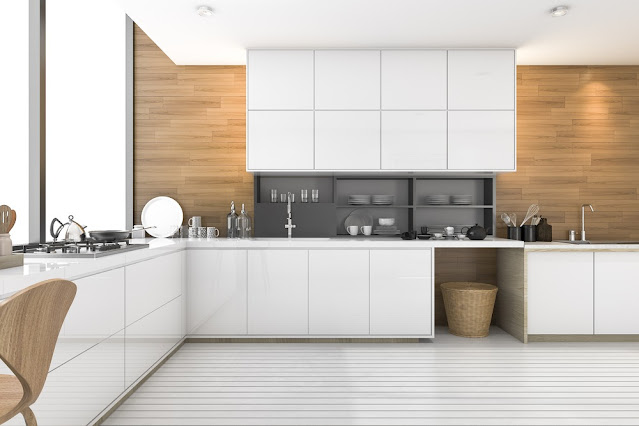Modular Kitchens And Ramadan Practical Tips For Meal Prep And Organization
As
the holy month of Ramadan approaches, Muslims around the world eagerly
anticipate the spiritual blessings and communal gatherings that define this
sacred time. However, amidst the spiritual reflection and fasting, the
practical aspects of meal preparation can sometimes become overwhelming. This
is where the efficiency and organization offered by modular kitchens can be invaluable, streamlining
the process and allowing individuals to focus on the spiritual essence of
Ramadan.
Modular
kitchens are a contemporary solution to the traditional kitchen layout,
characterized by customizable units or modules that can be arranged according
to individual preferences and space constraints. These kitchens are designed
with efficiency and functionality in mind, offering ample storage, convenient
accessibility, and ergonomic designs. During Ramadan, when meal preparation
takes on added significance, the benefits of a well-organized kitchen are
particularly evident.
Here
are some practical tips for utilizing modular kitchens to simplify meal prep
and organization during Ramadan:
1. Optimize Storage Space: Modular
kitchens are renowned for their smart storage solutions. Use pull-out drawers,
corner units, and vertical shelves to maximize space and keep ingredients,
utensils, and cookware easily accessible. Designate specific areas for Ramadan
essentials such as dates, lentils, spices, and dry goods to streamline meal
planning.
2. Customize Workstations: Customize your
kitchen layout to create dedicated workstations for different aspects of meal
preparation. Designate one area for chopping and slicing, another for cooking,
and a third for assembling and plating. This division of labor will streamline
the cooking process and minimize clutter.
3. Utilize Multi-Functional Appliances:
Invest in multi-functional appliances that can perform a variety of tasks, such
as pressure cookers, rice cookers, and food processors. These versatile tools
not only save space but also streamline meal prep by reducing the need for
multiple gadgets.
4. Meal Planning and Batch Cooking: Plan
your meals in advance to avoid last-minute stress and indecision. Use your
modular kitchen’s organizational features to create a meal plan for the week,
taking into account dietary preferences and nutritional requirements. Consider
batch cooking large quantities of staple dishes such as soups, stews, and
casseroles, which can be portioned and frozen for quick and convenient meals
throughout Ramadan.
5. Labeling and Inventory Management: Keep
track of your pantry inventory by labeling containers and shelves with the
contents and expiration dates of each item. This will help prevent food waste
and ensure that you always have the necessary ingredients on hand. Consider
implementing a first-in, first-out (FIFO) system to rotate perishable items and
maintain freshness.
6. Clean As You Go: Maintain a clean and
organized workspace by cleaning as you go. Keep countertops clear of clutter
and wash dishes and utensils promptly to prevent buildup and maintain hygiene.
Assign specific tasks to family members or housemates to share the workload and
foster a sense of communal responsibility.
7. Embrace Simplicity: Finally, remember
that Ramadan is a time for spiritual reflection and gratitude, not culinary
extravagance. Embrace simplicity in your meal planning and focus on nourishing,
wholesome foods that sustain you throughout the day. Modular kitchens can help
facilitate this by providing a functional yet uncluttered space for meal
preparation.
In
conclusion, modular kitchens offer practical solutions for simplifying meal
prep and organization during Ramadan. By optimizing storage space, customizing
workstations, utilizing multi-functional appliances, and implementing effective
meal planning strategies, individuals can streamline the cooking process and
devote more time to spiritual reflection and communal worship.




Comments
Post a Comment